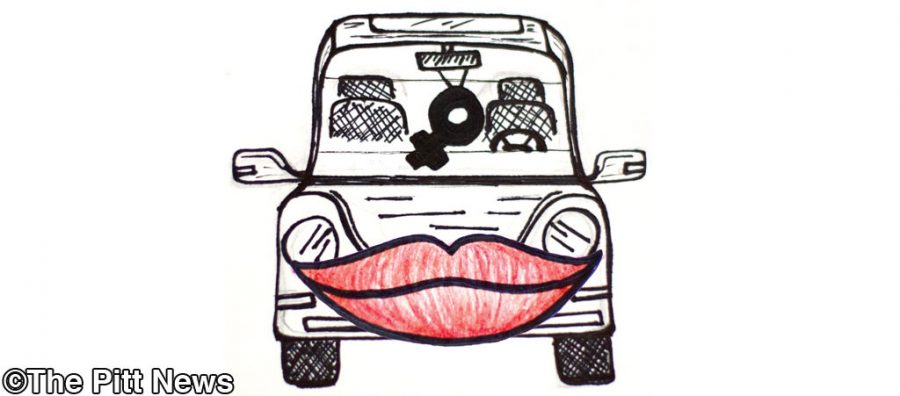Uber Pittsburgh to help hire 1 million women
March 30, 2015
On the road ahead, a popular rideshare company may drive straight through the glass ceiling.
Uber said this month that it plans to hire 1 million women by 2020 in hopes of “accelerating economic opportunity for women.” Uber, a San Francisco-based company that connects car drivers to passengers with an app, posted on its blog that it partnered with U.N. Women for this initiative on the 20th anniversary of the Beijing Declaration, an event held in 1995 to promote gender equality.
Jennifer Krusius, general manager of Uber’s Pittsburgh office, said Uber has not yet given the Pittsburgh branch specific instructions on how to implement the new plan in Pittsburgh.
According to “The Driver Roadmap,” a report released earlier this year by Benenson Strategy Group and published on Uber’s website, 14 percent of Uber drivers are female.
“I know that [the number of women hired with Uber] is a lot higher than the [U.S. ride sharing] industry,” Krusius said. “We do have a lot of growth [in Pittsburgh].”
Krusius said Uber’s flexible work hours appeal to women applying to Uber.
“I think women like it because they can log in whenever they want. They’ll pick it up as a second job, or moms can log in while their kids are at school,” Krusius said.
According to Uber’s “Driver Roadmap,” 42 percent of female Uber partners said part-time hours and flexible scheduling are major reasons they choose to work for Uber.
Rose Turley, a nurse who works at UPMC, started working part-time about a month ago for Uber because, according to Turley, the company offers good service. She added that it’s “good to have the extra cash.”
“I do like driving on Thursday nights, when a bunch of people are trying to go to Hofbrauhaus in South Side, that I can work these extra hours on my time and make pretty good money,” Turley said.
During the month she has worked for Uber, Turley’s gender has led to some bumpy rides.
A young man once tried to pick her up, to which she politely said, “Thanks, but no thanks.” Another passenger once joked, “Female drivers!” when the GPS tried to take her through a construction site.
Turley said she brushed off the incidents. As for her safety, Turley said others worry for her safety more than she does.
“My parents, my friends and my boyfriend don’t really like that I’m [driving for Uber]. I sometimes worry about my safety,” Turley said. “As a woman, you are always vulnerable to any type of abuse.”
While the United Nations’s goals are “laudable,” true gender equality comes when women are behind the wheel and in leadership positions in the corporate office, Frayda Cohen, a women’s studies professor at Pitt, said.
Uber should protect women passengers at all times, Cohen said, including when they have a male driver. Uber also needsto have women in key leadership positions, according to Cohen.
“Diversity and equality at all levels are essential components for real, tangible, meaningful change,” Cohen said.
Natalia Wilk, a sophomore architecture major at Pitt, has “never had a female driver,” she said, during the few times she used Uber.
“I think that it is a great opportunity for women who may have felt intimidated by the high male ratio in this business,” Wilk said in an email. “It is smart to set a number so that there is a goal to be met and women feel valued as Uber drivers.”
Wilk said she has no preference for whether her Uber driver is male or female, but she might be more likely to take an Uber ride from a woman if she were traveling alone.
Curran Dougherty, a senior majoring in politics and philosophy, said he rides with Uber once or twice per week. Like Wilk, he doesn’t have much of a preference for male or female drivers, but he added that more female drivers will benefit Uber.
“In my experience, women are better drivers than men,” Dougherty said. “I know that goes against the stereotype.”








